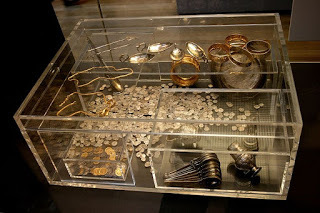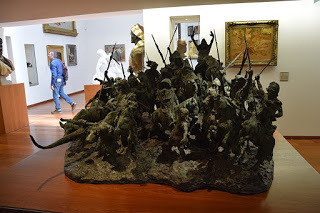Easily confused?
This is a vocabulary post. There are pairs of words whose meanings are different but look so similar that some people find it hard to know which to use in any given situation. Take "uninterested" and "disinterested."
If you are "uninterested" in something, as I am in all sport except Men's Grand Slam tennis, it means you take no interest in it; it is not for you.
"Disinterested" is what you want those adjudicating sport to be, whether umpire, referee or line judge, having no personal or financial "interest" in the outcome. It's the same as "impartial." It never means not having an interest in something, in the sense of not finding it interesting.

Then there's "imply" and "infer." I imply; you infer. In other words, to imply is to suggest something - "I wouldn't buy a used car from him," whereas to infer is to pick up the suggestion - "You mean he isn't trustworthy?"
"Affect" and "effect." To affect something is to have an effect on it! "Knowing his past history with women affects my decision whether to go out with him" and "The effect of what she told me made me say no."
"Complement" and "compliment." You "complement" something by adding to it, making it more effective or complete. "That colour really complements her red hair." Whereas to "compliment" someone or pay them a "compliment" means to say something nice to someone. "She complimented her friend on her new dress" or "He paid her the compliment of listening to what she had to say."
"Emigrate" and "immigrate." You can't to one without the other. You "emigrate" from the country you are leaving and "immigrate" to the country you are moving to. When we talk about "immigrants," we should remember that they are "emigrants" from somewhere and think about why.

"Flaunt" and "flout." I see this mistake in printed books. They are both verbs. You "flaunt" your good looks, your car, your superior grasp of grammar. You "flout" the rules or the conventions.
"Loose" and "lose." One is an adjective and the other a verb. "Loose" is the opposite of "tight." And "lose" is the opposite of "win." They don't even sound the same.
"Stationary" and "stationery." These do sounds the same. The way to remember the difference is that "stationery" is sold by a "stationer." Whereas "stationary" means static or standing still.
"Fawn" and "faun." A fawn is a baby deer and gives its name to a sort of beige colour. A faun is a creature like Mr Tumnus in Narnia and is human above, goatlike from the waist down. Its also sometimes called a satyr.
"Hoard" and "horde." Another pair that sound the same. A hoard of gold is what Smaug the dragon sits on and a horde of people is a crowd, often a hostile one.
 A hoard of treasure
A hoard of treasure Statue of Attila the Hun and his horde
Statue of Attila the Hun and his horde
Mary Hoffman's Blog
- Mary Hoffman's profile
- 591 followers



